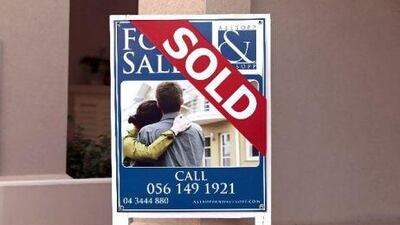Lenders are starting to aggressively target homebuyers for the first time since US mortgage defaults sparked the 2008 global meltdown.
Financial Fallout: Read The National's coverage of the global economic chaos
World view bleak but picture looks brighter in the Middle East Declines in markets are raising the likelihood of another global slowdown. If the world does lurch back into recession, economists say the MIddle East is in a better position to weather the economic storm. read article
Local tourism and retail at some risk Consumer spending is expected to remain buoyant across the Middle East should there be another economic slowdown across the world. Read article
Asia may put GCC on slippery slope An economic slowdown threatens fuel demand, but Opec is likely to act if oil prices far too fall. read article
Small businesses can take shelter With the threat of a second global downturn looming large, both small businesses and investors have a lot to lose. read article
Threat to US and EU but Gulf set fair Financially, the region is in a better position to weather storms. read article
Home Matters, a mortgage consultancy in Dubai, handled more transactions by May this year than in all of last year, says Jean-Luc Desbois, the managing director of Home Matters.
In March his business was up threefold from the same month last year.
"Banks are showing a greater appetite to lend," he says.
Bank mortgages issued in the UAE totalled Dh163.19 billion (US$44.42bn) last year, a 15 per cent increase from the previous year, according toCentral Bank data.
Lenders are making it easier for consumers to obtain home mortgages, industry executives say.
Banks have eased requirements for down payments in many cases, making financing available for up to 85 per cent of the value of the home instead of 70 to 75 per cent previously.
This year banks started offering loan rates as low 4.99 per cent. And Tamweel, a lender that emerged from reorganisation earlier this year, last month announced plans to resume offering financing to overseas buyers, seen as the riskiest clients during the last downturn.
Many analysts predict Dubai prices will continue to fall in the Emirates in next 12 months, after dropping by as much as 50 per cent in some places from the peak of the market.
But the current focus is on buyers who plan to use property, not investors looking for a quick flip and a fast profit.
"I think the risk has reduced compared to 2010," says Sam Wani, the general manager of Independent Finance, a mortgage broker in Dubai. "Prices have stabilised in certain locations."
Lenders are still cautious about screening clients, but there been a change in the environment since 2008, he says. "The money is there. The banks are flush with liquidity."
There have been other subtle changes in the process as lenders try to once again actively recruit home loan clients. In some cases they may accept a minimum monthly income of Dh10,000 instead of Dh15,000, if the property is inexpensive and in a desirable location, agents say.
During the last downturn many lenders would not offer loans to employees in the property and construction industries, considering their jobs too risky. But the banks are now willing to consider mortgages for those employees, in another sign of confidence in the market, Mr Desbois said.

